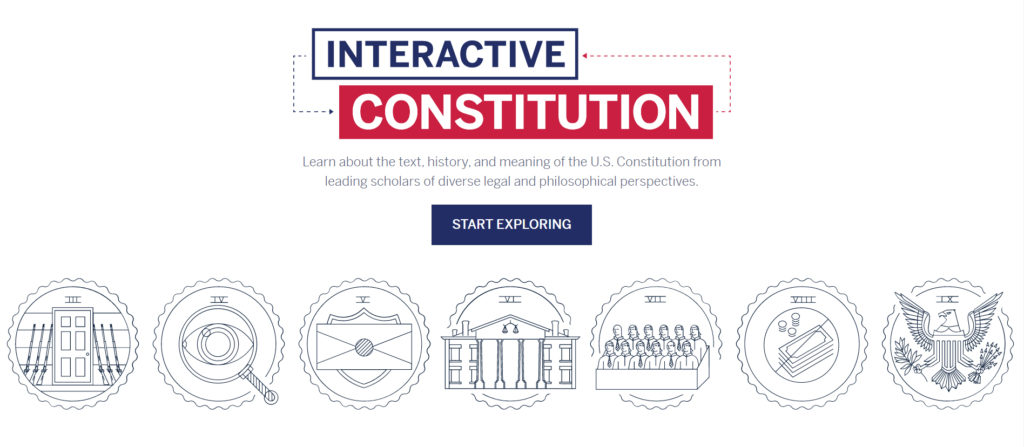
The last year has been stressful at best and disastrous at worst for many of our students, families, and educators. Many of the educators I know have never worked harder, often times while “homeschooling” kids of their own. Some have navigated COVID well, but for most of our children, particularly those most in need, the impact has been severe. Going into this school year, experts predicted that COVID-related learning loss would put students, particularly our most vulnerable children, a half-year behind.
Following the third federal stimulus package in a year, we now arrive at a transformative moment, where we can, in President Biden’s words, “build back better.”
In order to do that right, we will need to bring an equity lens to this opportunity. This isn’t about spreading the resources evenly like peanut butter, but about making the tough decisions to ensure that those who need more—those who learn differently, are poor, or don’t speak English as a first language—get what they need to succeed.
There are strings attached to some of these dollars, and we should coordinate where we can. There are plenty of nuts and bolts investments in technology, improved ventilation, and personal protective equipment that need to be purchased. We should be working across state, charter and district lines so we can get some economies of scale in those purchases. Beyond the basics, I’m hoping we can also find some ways to work together on some transformative ideas that will change the game for our kids.
No mistake about it, this is a gargantuan amount of funding. Delaware received $119 million in federal Race to the Top funds in 2009. In the last year, Delaware will have received five times that amount. That is, over $600 million in K-12 alone—$43 million and $183 million from the in Elementary and Secondary School Emergency Relief (ESSER) Fund and ESSER II in 2020; and $411 million from President Biden’s American Rescue Plan.
A few considerations on how to spend this well:
- Avoid funding cliffs. School leaders and policymakers would be wise to keep in mind that the stimulus represents largely short-term funding. So, we should be looking to fund big ideas with heavy upfront costs, but manageable “tails.”
- Engage the community and invest in what works. Ninety percent of these funds will be decided on locally at our districts and charter schools, and because the last two stimulus packages have moved fairly quickly, community input has been limited. To ensure we hit on the right needs and earn buy-in to the long-term solutions, charter and district schools should build in time for the community to weigh in. This local input should be coupled with national best practice and a commitment to transparency and ongoing evaluation.
- Design thoughtfully and don’t rush. We don’t need to spend everything tomorrow. There is time for state and districts leaders to think deeply about our needs and target funding appropriately. While the funding needs to be obligated by 2023, the expenditure of those dollars can extend beyond that year.
- Build in-state capacity whenever possible. In order to spend this level of funding quickly, it’s natural to leverage national expertise. But at the end of the day, we want to build for the long haul, so we should build the capacity of local schools and partners whenever possible. The impact of this investment will come down to the strength of our leaders and the quality of our implementation.

Big Ideas. Given the scope of this investment in our state, how might we work together to catalyze transformational change? Here are just a few ideas to help inform our collective thinking.
- Strengthen our tech infrastructure. At this point, we’ve already done a fair amount of work to strengthen our broadband, but we should ensure every child has 1:1 access to a tablet and Wi-Fi. The next push in Delaware could be sustaining those investments over the long run.
Action Steps:
- Ensure our Wi-Fi infrastructure is built for the demands of tomorrow.
- Build a network of help desks to ensure parents and students have the support they need.
- Establish long-term strategies (versus the piecemeal plans built during the pandemic) and leverage the state’s buying power to cover broadband access statewide.
- Invest in Early Childhood Education (and Educators). Quality early learning helps children succeed in school and later in life—but Delaware’s industry, along with many families, are in a crisis. Delaware invests pennies on the dollar on early learning compared to K-12. Today only about 15 percent of Delaware’s three- and four-year-olds have access to state funded pre-K, and there are waiting lists at all locations. Early learning teachers earn about one-third of the salary of kindergarten teachers.
Action Steps:
- Invest in childcare providers so they can pay workers a fair wage, on par with K-12 teachers.
- Invest in improving their facilities and quality learning materials.
- Invest in our teacher pipeline. Delaware needs to find and keep a diverse, strong teacher pool, particularly in our highest-needs schools, to meet the ever-changing needs of our diverse student population. Let’s strengthen our “grow our own” strategy.
Action Steps:
- Build a sustainable model to expand “teacher residencies” in the state so that new teachers can get a stipend and a full year of on-site training before they start.
- Marry the training needs of teachers with the needs of students who need to catch up.
- Create a network of schools that can support the next generation of teachers through partnerships with higher education and new roles for teachers to lead.
- Strengthen the high school teacher academy pathway by building a roadmap to the classroom with a focus on diversifying our workforce to better reflect our students.
- Invest in high-dosage tutors, like the AmeriCorps fellows at Reading Assist or those at Back to Basics as a pipeline to fill teacher shortages.
- Build deep academic and social supports for vulnerable populations. For too many of our students, particularly those with learning differences or of color, this was largely a lost year academically. For many, the pandemic led to increased anxiety and depression. We need to diagnose where they are and identify the supports they need. Achievement gaps existed prior to COVID; to close them will take more than a summer and these interventions should ideally become permanent.
Action Steps
- Diagnose where students are socially and academically (see here for some state strategies and tools).
- Expand social services commensurate with the needs in a given community. HB100, a bill to expand counseling supports statewide, may help on this front.
- Invest in outdoor activities, like camps and expand in-school and after-school programs that get students reconnecting and away from screens.
- Map out existing academic and social supports and work to coordinate training and support regionally. For some students, “high-dosage tutoring” may be critical to their success.
- Create an approach to learning based on evidence-based strategies of how to best serve students during and following the pandemic (see the four core actions and key components of the state’s Strategy to Accelerate Learning here).
- Expand on what worked about remote learning. For some who wanted to move at their own pace without the distractions of a typical classroom, or perhaps take a more challenging course than was being offered at their school, remote learning worked. Let’s build on that.
Action Steps:
- Why not create more virtual options for students who prefer that approach, or who want to access courses that are more rigorous?
- Increase course offerings that enable students to accumulate credits as they demonstrate their competency.
- Expand on online hubs like Digital DE that provide easy access to high-quality instructional materials and professional development resources. Build a platform in which any teacher in the state can access 24/7 the best curriculum in the world aligned to Delaware standards. And, expand technology platforms like Schoology to connect instructional materials, teaching strategies, assessment data, and student information so systems for educators are integrated.
- Rethink high school. With more than half of Delaware’s high schoolers now in a career pathway, the lines between school, work, and college are blurring. Let’s build on what’s working.
Action Steps:
- Expand the training and course offerings in middle school to help our kids make smarter choices about high school and their course of study.
- Make clear, permeable pathways (“road maps”) for our young people to take the courses and access the funding they’ll need to pursue a career of their choice.
- Redesign some high schools to create formal partnerships with colleges and employers, such that students can walk out with work experience or apprenticeships, college credit, and a better sense of what they want to do next.
- Invest in transitioning workforce and credentialing programs to online models so that young people and adults can easily access the training they need to reskill or upskill.
- Strengthen our data systems so that we can know what’s working and tell the stories of the college and career paths our students take post high school.
- Support community-wide investments. While schools are the backbone of any community, we also know that they are a reflection of the housing, health, food, and justice issues that surround them. An isolated investment in a school isn’t likely to change the life trajectories of the children it serves.
Action Steps:
- There are several strong multi-faceted efforts in our state that work on the housing, economic and educational issues that transform lives. We should work to address the issues of poverty holistically through coordinated collective action.
- As we work to revitalize our most challenged neighborhoods, why not invest in creating “teacher villages” that provide subsidized housing for educators and build a sense of community among them and the families they serve?
This is a start of a discussion. We faced equity challenges before COVID. Now’s the time to own those systemic issues and build for a better future. Some of the plans and tools are coming together, we have an historic amount of funding, and a history of being able to work together to get good things done. As we cautiously turn the corner on this pandemic, let’s be smart and make the most of this moment.
Additional Resources:


